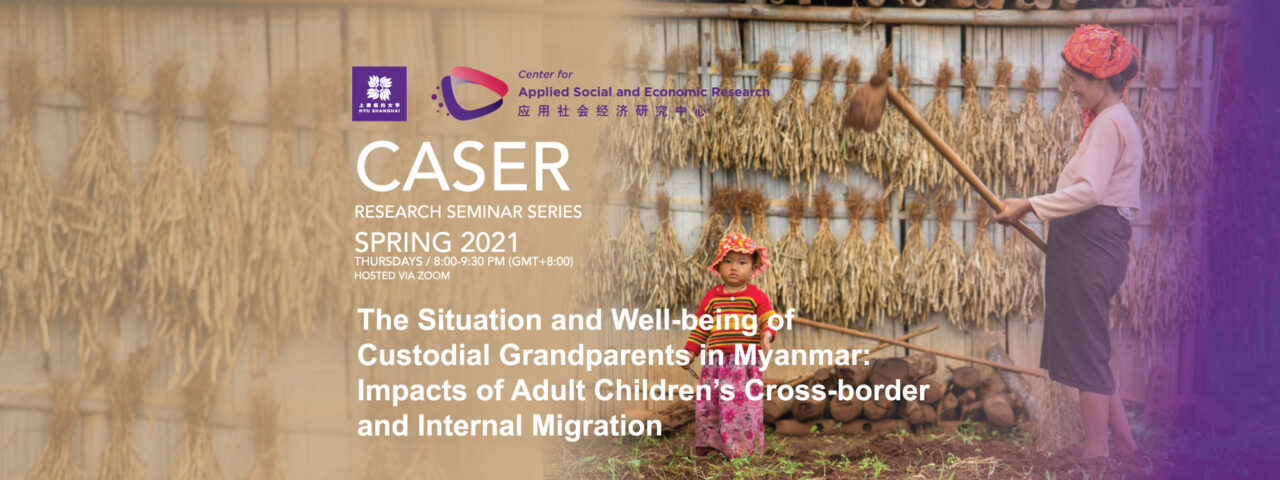Share:
The Situation and Well-being of Custodial Grandparents in Myanmar: Impacts of Adult Children’s Cross-border and Internal Migration

- Bussarawan Teerawichitchainan, National University of Singapore
- 8:00-9:30 pm(GMT +8:00), Thursday, May 13, 2021
- Seminar hosted via Zoom
Abstract
Custodial care for grandchildren left behind by migrant parents is an important contribution made by grandparents for their families and societies, given rising migration flows and increasing prominence of skipped-generation households in low- and middle-income countries. Yet, little is known about the scope and consequences of custodial grandparenting in developing settings. Analyzing unique data from the 2017 Myanmar Grandparents Caring for Grandchildren Survey, this study examines the extent to which the middle generation’s cross-border and internal migration are associated with caregiving intensity, perception towards grandchild care, and psychological well-being among grandparents. Results suggest limited negative impacts of the middle generation’s migration on the situation and well-being of grandparent caregivers. Custodial grandparents, particularly those caring for children of cross-border migrant mothers, experience heightened caregiving responsibilities and perceived difficulties in grandchild care. Nevertheless, all else equal, the middle generation’s migration is not significantly associated with grandparents’ psychological well-being. Remittances from migrant children and care support from non-coresident family members are found to reduce grandparents’ caregiving intensity, improve caregiving perception, and lower psychological distress. In sum, findings echo Myanmar’s widespread norms of grandchild care provision by grandparents and underscore mutual interdependence across generations, as evidenced in the importance of remittances from migrant children and informal care support networks in determining the well-being of Myanmar grandparents. This study extends current theoretical perspectives that emphasize custodial grandparenting either as a response to family crises or as a household strategy to facilitate middle-generation migration. Instead, our evidence suggests that, when conceptualizing custodial grandparenting practices in developing settings, it is instructive to consider not only opportunities but also challenges and ambivalent situations associated with the middle generation’s diverse migration patterns.
Biography
Bussarawan (Puk) Teerawichitchainan is Associate Professor in the Department of Sociology and Co-Director of the Centre for Family and Population Research. She received a Ph.D. from the University of Washington. She was a past fellowship recipient of Fulbright, the Social Science Research Council, RAND, and the Population Council. Her research interests lie at the intersection of family demography, social gerontology, population health, and social stratification. Her current research examines the roles of family, policy, and social structure in explaining the well-being of older persons in the Asia Pacific region, particularly Southeast Asia. Her research has been funded by the National Institute on Aging (NIA) and Singapore Ministry of Education Academic Research Fund Tier 2.

